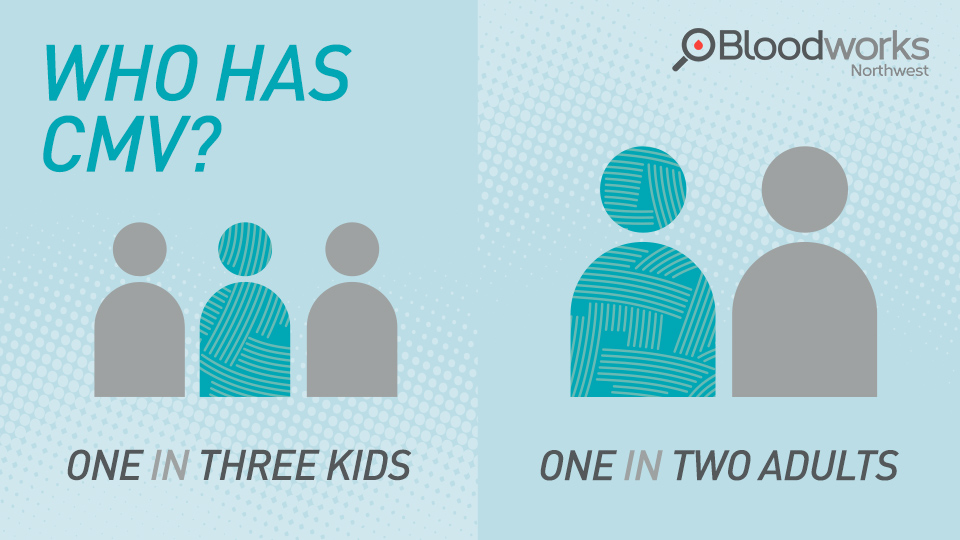
Cytomegalovirus (CMV) is a common virus spread through blood, saliva, breastmilk, and other bodily fluids. The name sounds mega scary, but it’s nothing to worry about for most of us.
CMV generally isn’t a problem for healthy adults. If you’ve had CMV, you probably don’t even know that you had it: most people are asymptomatic, and those who do feel sick have symptoms similar to those of other viral infections: fever, a sore throat, fatigue, and swollen glands.
However, CMV can be dangerous for premature babies and people with severely weakened immune systems. These individuals may experience more serious symptoms that affect and may damage their eyes, lungs, liver, esophagus, stomach, and intestines. Babies born with the congenital form of CMV may have brain, liver, spleen, lung, hearing, and growth problems.
The older you are, the more likely you are to have been exposed to CMV. Around 1 in 3 children in the US have had it by age 5, and by age 40 your odds of infection are 1 in 2.
It’s so pervasive that we don’t test for it as part of the regular 13 tests performed on each unit of donated blood.
And whether you’re positive or negative, each status could potentially help you save lives.
Once CMV is in your body, it stays there for the rest of your life. As long as your immune system is strong, the virus remains in a latent state within your white cells. If your immune system weakens, the CMV infection may reactivate.
Because CMV is spread by bodily fluids, someone with a weakened immune system could potentially become infected through a blood transfusion with a new strain of CMV.
Many hospitalized patients are immunocompromised, so we reduce the risk that they will contract CMV from a blood transfusion by a process known as leukoreduction. With leukoreduction, we take the donor red cells or platelets and process them using a special filter designed to reduce the number of white cells in the product.
A white cell count below 5 million is often enough to prevent transmission of CMV from a blood product.
A few times a year, Bloodworks’ specialty labs also need to actively seek out donors who are CMV negative for specific patients in need. These include intrauterine transfusions to an unborn baby and very immunocompromised patients requiring granulocyte transfusions—white blood cells collected by apheresis from an ABO-Rh compatible donor—to help fight infection.
Considering that it takes 1,000 donations each day to maintain a safe and reliable blood supply in the Pacific Northwest, this is very rare!
When this happens, the Special Collections Coordinators in our contact center will schedule donors who meet the needed criteria to ensure that no one goes without this lifesaving treatment.
The donors who answer the call remember fondly the time that their blood was in special need.
Stem cell transplants are often the only cure for patients with leukemia, lymphoma, or other blood disorders. Because the treatment involves replacing the patient’s immune system with that of a healthy donor, these patients must undergo aggressive immunosuppressive therapy before they can receive the transplant. This leaves them susceptible to viral infections, such as CMV.
Bloodworks Bio is currently partnered on a project that’s looking for donors who test positive for prior CMV infection and four other specific viral markers. White blood cells donated by healthy individuals who test positive for these five viral markers can be turned into an exciting new cell therapy that could potentially help protect stem cell transplant patients from these five common pathogens until their own immune system recovers.
This is where our Research Donor Program comes in. Our team of nurses and study coordinators are able to identify donors within our vast donor pool who are most likely to meet the criteria by looking at their CMV status.
We can’t know who is qualified until we screen potential participants, but it’s another great way to make a difference for patients in need in our community and around the world.
Your type is always needed! Schedule your next appointment and learn more about Bloodworks’ Research Donor Program.
Tell Us What You Think!